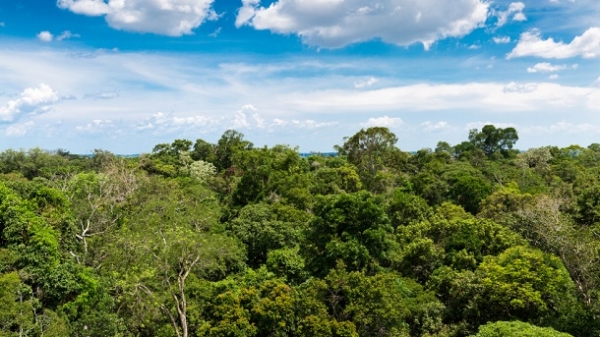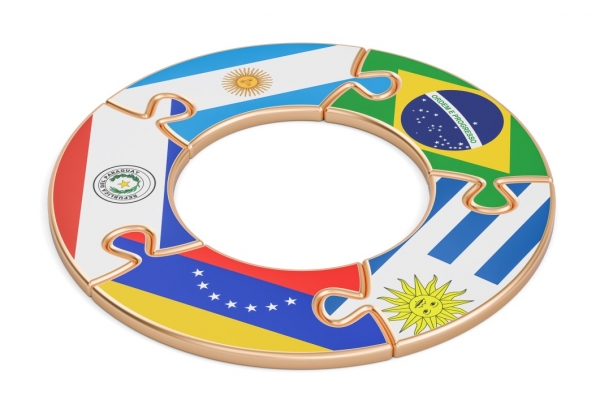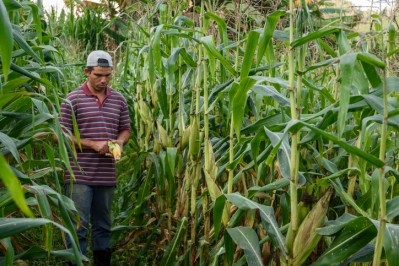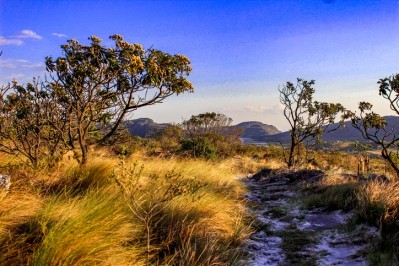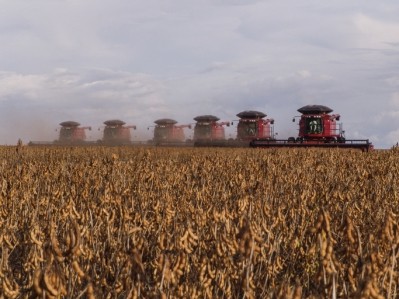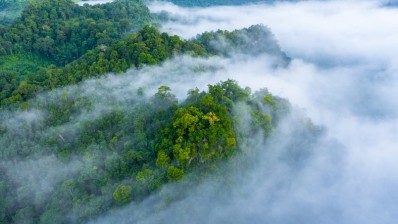EU-Mercosur deal faces mounting opposition as soy and beef exports drive deforestation in Brazil
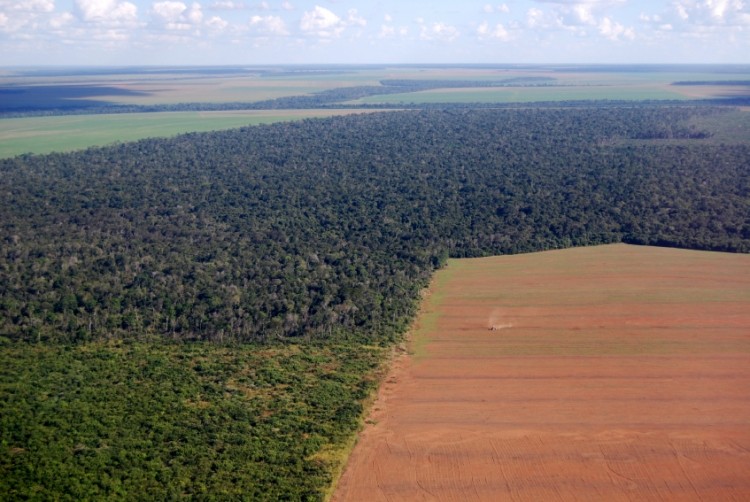
A fresh study, published in the journal Science, has found 18-22% of soy and 17% of beef imported to Europe from Brazil is associated with deforestation.
Brazil provides between 25% and 40% of EU beef imports. The EU is the country’s second largest market for agricultural goods behind China, accounting for 19% of the country’s agricultural exports over the past five years.
The study, The Rotten Apples of Brazil’s Agribusiness, found 10-14% (0.4-0.6m million heads of cattle) come ‘directly from properties with potentially illegal deforestation’. In addition, 38-58% of all slaughtered heads may be ‘contaminated with potentially illegal deforestation’ from indirect suppliers as the cattle pass from one property to another before being slaughtered.
Researchers discovered only 2% of properties in the Amazon and Cerrado are currently responsible for 62% of all potentially illegal deforestation. These properties are in some of the areas most closely associated with soy and beef production for export, they noted.
“This small but very destructive portion of the sector poses a threat to the economic prospects of Brazil’s agribusiness, in addition to causing regional and global environmental consequences,” the study stated.
The researchers added 94-146,000 properties (or 15% of the sample), was deforested after 2008 - the deadline year for granting amnesty to eligible past deforesters. “About 36,000 of these properties in the Amazon (84%) and 27,000 in the Cerrado (35%) carried out this deforestation, in all likelihood, illegally,” the study claimed.
"All economic partners of Brazil should share the blame for indirectly promoting deforestation and GHG emissions by not barring imports and consuming agricultural products contaminated with deforestation, illegal or not."
Deforestation and climate change
The release of carbon when forests are cleared or burned contributes to global greenhouse gas (GHG) emissions. According to figures from the Rainforest Trust, tropical deforestation accounts for up to 15% of net global carbon emissions each year.
In addition, forests act as carbon sinks, support clean air and water, and supply rainfall to sustain agricultural production.
Accelerating levels of deforestation place this balance at risk. At a press briefing organised by the Intergovernmental Panel on Climate Change (IPCC) late last year, Dr Carlos Nobre, a senior climate scientist at the University of São Paolo, noted: “Forests cool the tropics by more than one degree and increase the level of rainfall… They also cool downwind regions, including central Brazil where there is a lot of agricultural activity.”
Dr Nobre – an expert in the Amazonian region – had an important warning. “Deforestation rates increased dangerously in the last three years. Especially in the last 12 months, during which the deforestation rate in the Amazon has increased by over 40%. Deforestation rates in Colombia are also increasing. That is very worrying.
“The Amazon may be closer to a tipping point than we assumed before. If total deforestation exceeds 20-25%… it is currently at 16-17%... there might be an irreversible transformation.”
Under Brazilian president Jair Bolsanaro’s regime, the country has weakened protections for the country’s ecological regions, including the Amazon, and threatened to withdraw from the Paris Climate Change Agreement.
As a result, Brazil has faced widespread criticism for its approach. Just last month, an open letter signed by 30 investors from nine countries was issued calling out the current administration’s poor performance on deforestation.
While Brazil has a ‘good record of combating deforestation’, the ‘escalating deforestation’ combined with ‘reports of a dismantling of environmental and human rights policies and enforcement agencies’ are creating ‘widespread uncertainty’, the letter said.
In particular, signatories – led by the NOK786bn Storebrand Asset Management – expressed concern about a proposed rule to legalise the private occupation of public land, which is largely concentrated in the Amazon rainforest. "Should the measure pass, it would encourage further illegal occupation of public lands and widespread deforestation which would jeopardize the survival of the Amazon” putting in doubt the targets agreed under the Paris Climate Change Agreement.
The rule, which has been submitted to the Brazilian congress for a vote, would also 'undermine the rights of Indigenous and traditional communities', the letter said.
European trade and Mercosur coming under pressure
Signed a year ago, the trade agreement between the EU and Mercosur - Brazil, Argentina, Paraguay and Uruguay - is the biggest trade treaty ever negotiated. However, it now appears the US$19trn agreement’s ratification is in the balance due to Brazil’s refusal to address deforestation.
The EC has argued that the deal makes adequate provision for environmental and food safety protections.
“Nothing in the agreement changes the way the EU adopts and enforces its food safety rules, be it for domestically produced or imported products,” the Commission said in a statement.
“Through this agreement, the EU and Mercosur are also committed to effectively implement the Paris Agreement on Climate Change. The text of the agreement reached… includes an explicit reference to the Paris Agreement and the two sides commit to fight against climate change and work towards the transition to a sustainable low-carbon economy. This includes among others a commitment to tackle deforestation.”
But scepticism is mounting and Brazil’s failure to tackle deforestation has acted as a lightning rod for critics.
The Irish Farmers Association, for instance, has long-argued that opening the market to imports of Brazilian beef, whose environmental and safety standards are not aligned with EU standards, has the potential to undercut European farmers.
Under intense pressure from lobbyists, the European Commission has insisted that all Mercosur imports must meet ‘100% of EU requirements’. IFA President Joe Healy said it is ‘clear’ that the current beef imports ‘fail this at every step’.
Deforestation and environmental degradation – alongside quality concerns - are important planks in the IFA’s argument.
“In Brazil cattle are not tagged, there is no database and no traceability. Hormones, beta-agonists and other growth promoters are widely available and used. These products are illegal and banned in the EU. Brazil has endemic foot and mouth disease.
“On environmental degradation, Brazil is burning an Amazon rainforest area the equivalent size of a football pitch every minute to make way for cattle ranching and additional beef exports.”
For backers of the deal, it will be a considerable concern that French President Emmanuel Macron has also spoken out about his concerns, having faced domestic political pressure from the Greens after a poor electoral performance.
Taking aim at Bolsonaro’s aggressive policies to develop the Amazon, at the end of June Macron declared France will not make 'any trade agreement with countries that do not respect the Paris Agreement'. The French President also called for the creation of the crime of ecocide, which he said should be judged by the International Criminal Court.
The Dutch parliament, as well as Austria, Belgium, Ireland and Luxembourg have all now voiced opposition to the deal on the basis that it will bring ‘unfair competition’ to European farmers and accelerate deforestation in the Amazon.
Civil society adds to political backlash
Pressure from NGOs is also stepping up.
Client Earth, the International Federation of Human Rights (FIDH) and other non-profits have filed a formal complaint with the European Commission calling for the treaty to be suspended.
Delivered to the EU’s ombudsman, the complaint argues: “The European Commission has ignored its legal obligation to ensure the trade agreement with the Mercosur group of South American countries will not lead to social, economic, environmental degradation and human rights violations.”
Greenpeace trade expert Naomi Ages characterised the agreement as ‘trading more cars for cows’, an arrangement that was ‘never acceptable’ when it leads to the destruction of the Amazon.
“The deal would increase greenhouse gas emissions and undermine farmers’ livelihoods on both sides of the Atlantic,” Ages said.
“The EU must stop making trade deals that benefit big corporations greedy for export opportunities, turning a blind eye to the social and environmental damage they cause. The EU has a responsibility to address these injustices, not pave the way for them in return for short-term corporate profit.”
Germany, the biggest proponent of the deal, is expected to leverage its clout in backchannel negotiations to push the agreement through the European Parliament. But this task looks increasingly like an uphill struggle as the stand-off between the more environmentally sensitive EU and Brazil’s Bolsonaro intensifies.
